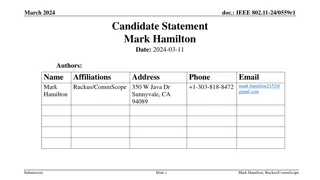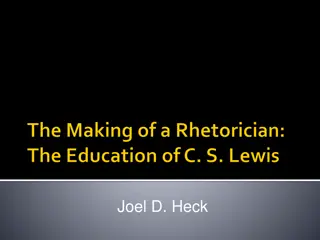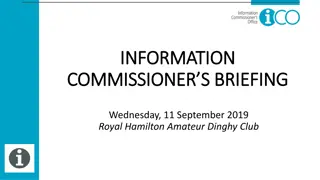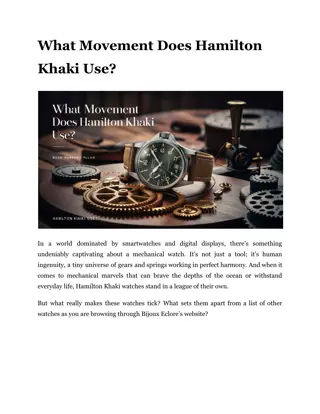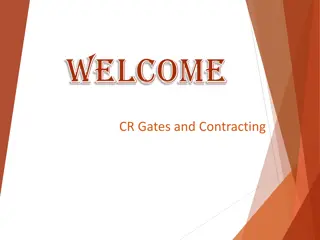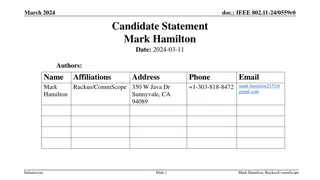
Charles Hamilton Sorley: Poet of World War I
Discover the life and poetry of Charles Hamilton Sorley, a talented poet of World War I known for his critical perspective and satirical tone. Learn about his upbringing, experiences in the war, and the posthumous publication of his work that garnered public interest.
Download Presentation

Please find below an Image/Link to download the presentation.
The content on the website is provided AS IS for your information and personal use only. It may not be sold, licensed, or shared on other websites without obtaining consent from the author. If you encounter any issues during the download, it is possible that the publisher has removed the file from their server.
You are allowed to download the files provided on this website for personal or commercial use, subject to the condition that they are used lawfully. All files are the property of their respective owners.
The content on the website is provided AS IS for your information and personal use only. It may not be sold, licensed, or shared on other websites without obtaining consent from the author.
E N D
Presentation Transcript
Born in Aberdeen, Scotland, where his father was a professor of moral philosophy at University The family then moved to England where the father was appointed a professor at Cambridge Sorley was originally home-schooled, particularly in reading poetry and ballads He was always fond of long solitary walks and runs, e.g. in his beloved Wiltshire Downs
He spent the year before the war in Germany> it was a happy time before he was due to take up scholarship at Oxford During the last week oh his stay in Germany, war was declared and he was briefly arrested on his way back to England Upon arrival back home, he immediately enlisted for the army, even though he actually admired the German people and culture By September 1915 he was a Captain. His regiment went to France where he was killed in battle on 13 October
The young Sorley was very critical of his own writing and thought of it as premature Yet he continued to send verses home from the front but was reluctant to the idea of them being published After his death, his parents decided to publish his poems and later on even his letters, to great success and public interest His poems show enormous promise, intelligence and spirit, as well as the ability to see what s below the surface The tone of his poem is satirical, often mocking the hypocrisy surrounding the Great War As his father said of his own dead son, He looked on the world with clear eyes and the surface show did not deceive him.
Charles Hamilton Sorley, All the hills and vales along All the hills and vales along Earth is bursting into song, And the singers are the chaps Who are going to die perhaps, O sing, marching men, Till the valleys ring again. Give your gladness to earth's keeping, So be glad, when you are sleeping. Cast away regret and rue, Think what you are marching to. Little live, great pass. Jesus Christ and Barabbas Were found the same day. This died, that went his way. So sing with joyful breath, For why, you are going to death. Teeming earth will surely store All the gladness that you pour.
Earth that never doubts nor fears, Earth that knows of death, not tears, Earth that bore with joyful ease Hemlock for Socrates, Earth that blossomed and was glad 'Neath the cross that Christ had, Shall rejoice and blossom too When the bullet reaches you. Wherefore, men marching On the road to death, sing! Pour your gladness on earth's head, So be merry, so be dead. From the hills and valleys earth Shouts back the sound of mirth, Tramp of feet and lilt of song Ringing all the road along. All the music of their going, Ringing swinging glad song-throwing, Earth will echo still, when foot Lies numb and voice mute. On, marching men, on To the gates of death with song. Sow your gladness for earth's reaping, So you may be glad, though sleeping. Strew your gladness on earth's bed, So be merry, so be dead.
Charles Hamilton Sorley, When you see millions of the mouthless dead When you see millions of the mouthless dead Across your dreams in pale battalions go, Say not soft things as other men have said, That you'll remember. For you need not so. Give them not praise. For, deaf, how should they know It is not curses heaped on each gashed head? Nor tears. Their blind eyes see not your tears flow. Nor honour. It is easy to be dead. Say only this, 'They are dead.' Then add thereto, Yet many a better one has died before.' Then, scanning all the o'ercrowded mass, should you Perceive one face that you loved heretofore, It is a spook. None wears the face you knew. Great death has made all his for evermore.
Why is the tone of All the hills and vales along so bitterly ironic? What are the effects of the perfectly regular aabb rhyming structure across the whole poem? How does earth respond to human suffering and death in the poem? Discuss the ways in which When you see millions of the mouthless dead undermines the language of commemoration. What kind of poetry does the poem criticize? Why and how?


